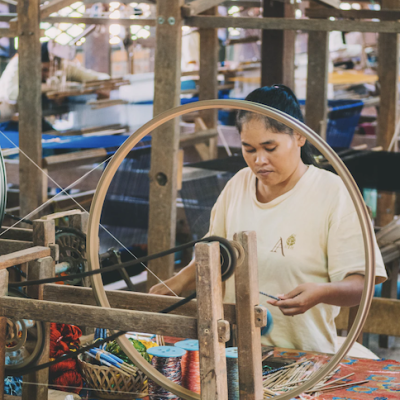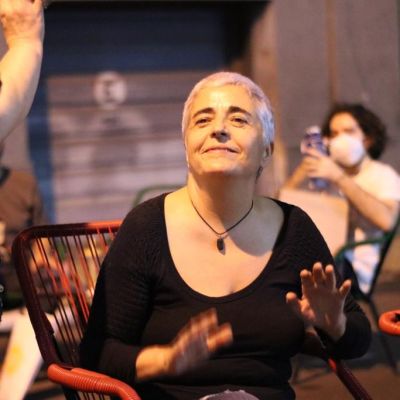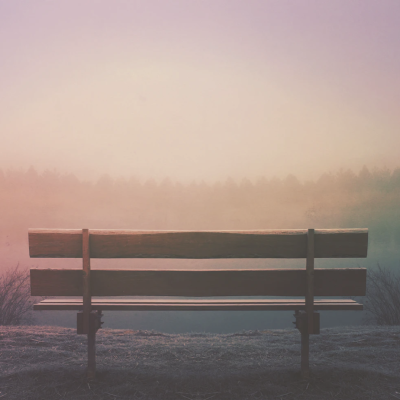Voices
Hallyu, or the Korean Wave, has perhaps been South Korea’s most prominent cultural export – first touching China and Japan,…
As soon as we think of sports, we also think of fans. But the nature of fans has most often…
When World War II started, one of the important changes in the labour market was a sudden increase in the…
When peeking into the universe of sex work, it is imperative to locate the various identities sex workers live with,…
Today as I write about my mother’s and chechi’s experiences through an intersectional feminist lens, I wonder who will pay for their physical and emotional labour. I wonder who will take responsibility for the loss of their youth. Who will take responsibility for the wear and tear that their bodies sustained from years of negligence? Most importantly, who will silence the mouths that say, “What ever did you do?”
Lisa calls such a model of marriage “sexist, out-dated and unrealistic.” Guess what? This sexist, out-dated and unrealistic model of marriage is the very model in vogue in our part of the world. Such a marriage model that should make parents of about-to-enter-matrimony women lose sleep, but this is the very model most parents are eager to shove their daughters into. Indeed such sexist marriages are the cause for over-the-top, days-long celebrations: i.e. the big, fat, horrendously expensive desi wedding.
I visited a woman in her late 30s at her house, as part of data collection for a study. She…
Some weeks ago, I was invited by the British High Commission to give a talk about sexual harassment at the…
Fifteen percent of the global population lives with a disability1, and these are the recorded numbers only for officially recognized disabilities….
What vindicates the argument that women with disabilities (WWDs) should be deprived of sexual and reproductive healthcare and rights is scary. Harmful stereotypes of WWDs include the belief that they are hypersexual, incapable, irrational and lacking control. These narratives are then often used to build other perceptions such as that WWDs are inherently vulnerable and should be ‘protected from sexual attack’.
I know that the lives of many human rights defenders are under continuous threat, that sometimes it is impossible to sleep or to enjoy a moment of peace because of the harassment coming from the outside. What I address in this text is our internal disposition as activists, and the ideas that stop us from taking care of and holding ourselves together.
What does it mean to hold space and extend compassion to ourselves and our communities? Rachel Cargle reminds us to ask ourselves: who would we be if we weren’t trying to survive? Similarly, what would care and vulnerability look like if we weren’t trying to survive? The anarchy of queerness constantly and necessarily resists the capitalist engineering of the Survival Myth: one that wants us to endure an isolated life instead of embracing it with the radically transformative joy of togetherness. Caring for yourself precedes, succeeds, and exists alongside caring for the collective.
Just as capitalism has learned how to co-opt feminism into its model, it has done the same to ‘wellness’, so much so it has become an industry of its own. Mental wellbeing, no matter how necessary and important it is, remains a luxury with more than half of our country either unaware of available mental health resources or not in a position to even afford therapy.
But self-care is not a clean and happy procedure, it is not definitively achievable when systematically explored. To understand the scope of self-care we need to see the ‘dark side’ of the landscape, and destroy the versions of self-care that denounce our plurality. In this fight, the only outcome can be a recognition of experiences beyond the wellness narrative structured around the neoliberal agenda. This article is an attempt at foregrounding some aspects of self-care that decentralise the prevalent commodification of it.
Ageing vaginas in ageing female bodies are joked about. But a vagina shouldn’t have the task of pleasing anybody but itself first. To begin with, we’ll have to love and respect our vaginas in order to pleasure them. Love them just as they are. If they feel a little dry, don’t despair. Use a lubricant or a little coconut oil. If my labia are unshapely, they’re still my labia and respond very nicely to gentleness and tenderness. If I don’t love and respect my ageing body, in need of gentle, loving, patient care, then who will, for God’s sake?















